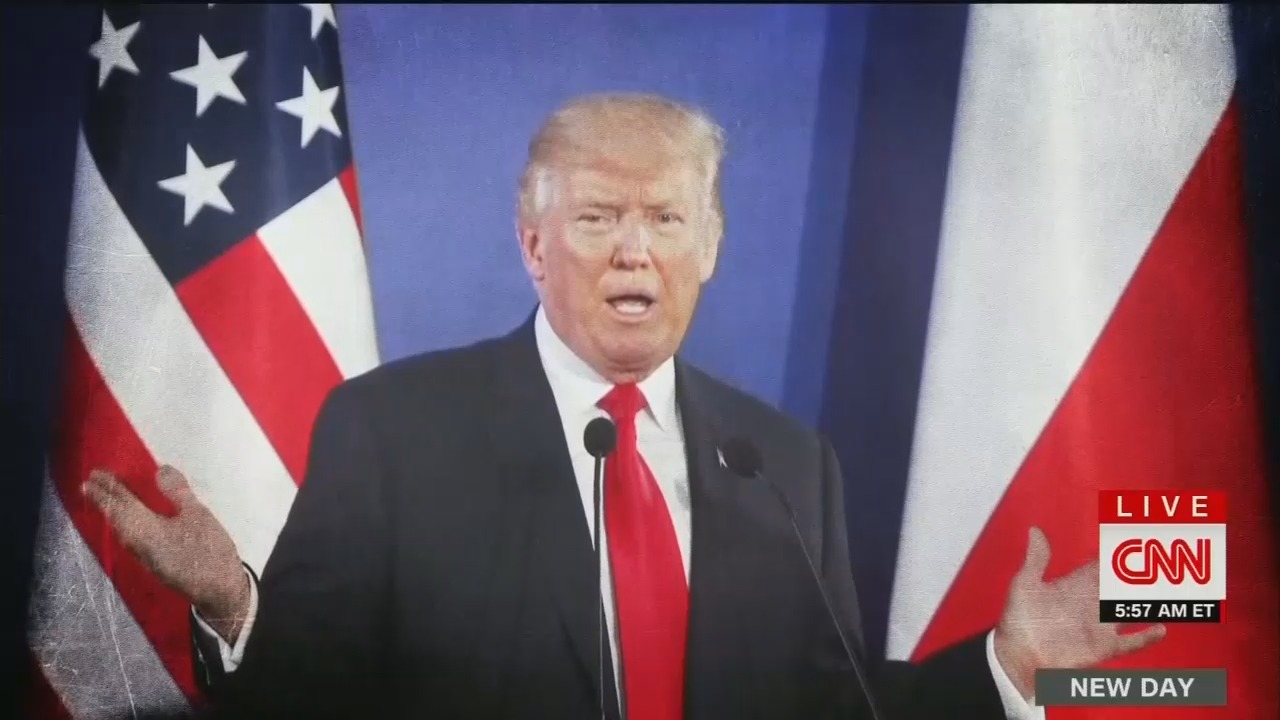 Throughout the 2016 presidential campaign, the media was technically correct and yet unrelenting in their criticism of then-presidential candidate Donald Trump’s reliance on the accuracy of entirely insignificant and unscientific surveys that reflected well on his candidacy and debate performances. On September 27, for instance, CNN posted a “fact-check” article, arguing that Trump “[misled] people by citing unscientific, unrepresentative Internet polls” in the wake of the first presidential debate in the general election. The Washington Post similarly argued that “the online polls are, again, garbage,” and impugned Trump for mentioning them in his speeches.
Throughout the 2016 presidential campaign, the media was technically correct and yet unrelenting in their criticism of then-presidential candidate Donald Trump’s reliance on the accuracy of entirely insignificant and unscientific surveys that reflected well on his candidacy and debate performances. On September 27, for instance, CNN posted a “fact-check” article, arguing that Trump “[misled] people by citing unscientific, unrepresentative Internet polls” in the wake of the first presidential debate in the general election. The Washington Post similarly argued that “the online polls are, again, garbage,” and impugned Trump for mentioning them in his speeches.
But opinions about the reliability and relevance of these unscientific surveys took a sharp turn this past week when these same media outlets stumbled upon an equally unscientific survey by Survey Monkey, the California-based survey software company, that released survey results suggesting that Americans trust CNN slightly more than the President. The Survey Monkey survey, completed by 4,965 adults between June 29 and July 3, resulted in 50 percent of respondents trusting CNN more than Trump, 43 percent trusting Trump more than CNN and seven percent indicating that they did not know who they trusted more. As with the surveys media criticized Trump for citing in support of his debate performances, the Survey Monkey survey is not a poll as traditionally defined. It does not contain any representative body of respondents and has no means of restricting those who do participate from voting multiple times.
But these facts, inconvenient to the media’s larger apparent effort to use the survey’s findings to bolster CNN’s credibility amidst broad questions of its flagrant anti-Trump biases and rapidly deteriorating ratings, were buried or omitted entirely in media’s coverage of the Survey Monkey findings. Instead, the survey results were reported with screaming, declaratory, and matter-of-fact headlines. The Hill, which had reported previously that Trump’s citation of surveys was groundless because they are unscientific, and reported on minor Twitter discussions of those comments as “blowback,” published an entire article on the survey, which now mysteriously was not a survey at all but a poll warranting an entire standalone article on its findings. "Poll: More Americans trust CNN than Trump," blared the headline of Aida Chavez's news article in The Hill.
During the campaign, when Time magazine posted surveys after general election presidential debates, they offered bold disclaimers that these surveys were unscientific and not necessarily reflective of broader national opinions. Yet, in reporting on the similar Survey Monkey survey that elevated CNN’s purported national credibility, Time also dutifully reported the recent survey as a “poll” with no such reminder of the disclaimers that came before. Similarly, USA Today, U.S. News, and others covered the findings of Survey Monkey’s unscientific survey without any qualification, inaccurately describing the survey as a poll and in some cases not even mentioning the source of the survey until the article's end.
The vast coverage of this survey comes despite legitimate recent polling on this subject, which has wrongly but conveniently received limited media attention. The results of a scientific and representative NPR/CBS NewsHour/Marist poll, released just a day after the Survey Monkey survey, found the very opposite of the widely reported Survey Monkey narrative: Americans actually trust Trump more than the media, with 37 percent of respondents affirming their trust in Trump over the media, compared to 30 percent trusting the media over Trump. Yet coverage of this scientific poll, which found that Americans’ trust in its media institutions is hauntingly low and below that of the President, validated the American people’s views on this credibility. The inaccurate, unscientific Survey Monkey survey was reported as fact and with widespread coverage when it could be fairly labeled "fake news." Conversely, the accurate, scientific NPR poll was released to some very telling media silence.




